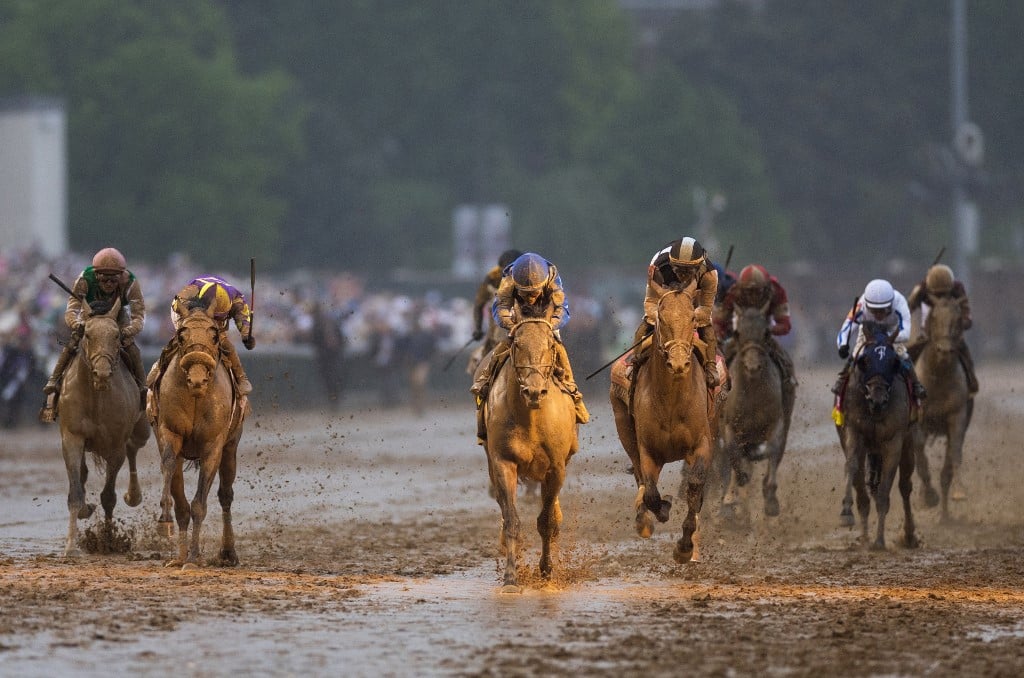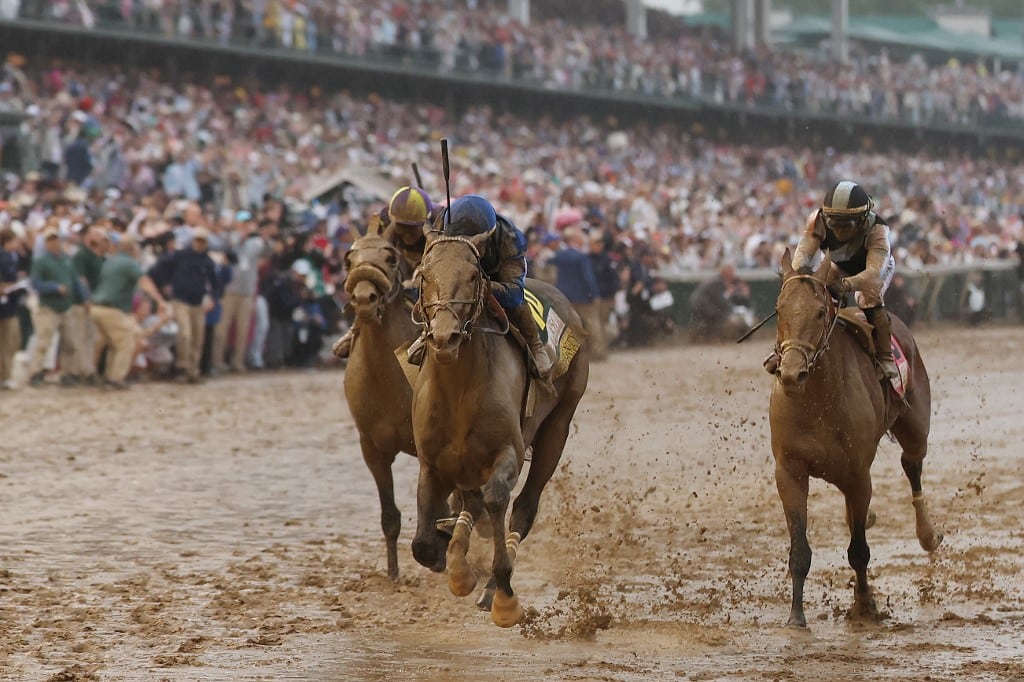
Weather conditions significantly affect horse racing outcomes, altering race dynamics and influencing betting odds at the top-rated sportsbooks.
Rain, wind, and heat can transform a track’s characteristics, impacting a horse’s ability to perform. Understanding these variables is crucial for refining your betting strategies and enhancing decision-making.
The thrill of horse racing extends beyond the track, involving numerous factors that determine the outcome. Among these, weather plays a pivotal role in shaping race results. Examining weather conditions allows you to gauge potential changes in a horse’s performance, providing insights into how horse racing odds might shift with different weather scenarios.
Track maintenance crews also play a vital role in managing weather impacts, employing various techniques to maintain optimal racing conditions. Understanding how these maintenance practices interact with weather conditions provides bettors with additional insights into potential race outcomes and track behavior during different weather scenarios.
Best Horse Racing Betting Sites
- Dynamic Betting Variety
- User-Friendly Interface
- Daily Odds Boosts
- Multilingual Support
- Bettor-friendly Platform
- Robust Search and Filter Tools
- Comprehensive Betting Resources
- Personalized Promotions
How Weather Impacts Horse Racing Performance and Outcomes
Trainers might adjust their strategies based on anticipated weather impacts, choosing to rest horses or select specific events where conditions are more favorable. The complex interplay between these elements underscores the importance of thorough analysis.
Wet Tracks and Windy Days Can Favor Certain Runners
Rain can dramatically alter a racecourse, turning firm ground into a slippery challenge.
Heavy rain may slow down the race pace, demanding more endurance from competitors. Wet conditions, however, can also favor horses with strong stamina and those accustomed to running on softer tracks. Similarly, wind might aid or hinder depending on its direction and intensity. A strong headwind can tire out front-runners quickly, while a tailwind might assist those trailing behind.
Hot, Humid Conditions Test Horses’ Endurance and Focus
Heat presents its own challenges, potentially leading to dehydration and exhaustion in horses not acclimated to high temperatures. When temperatures soar, horses may struggle to maintain their usual speed and agility, affecting their overall performance.
High humidity, on the other hand, can significantly impact a horse’s ability to cool down through sweating, potentially affecting their stamina and recovery between races. This factor becomes particularly important during summer racing seasons when monitoring humidity levels can provide valuable insights into potential performance variations.

Analyzing Weather Forecasts for Better Racing Insights
To effectively incorporate weather into your horse racing betting strategy, understanding forecasts is essential.
Analysing data from reliable sources can provide an edge when assessing potential race outcomes. When looking for conditions that could influence both track conditions and horse readiness, pay attention to:
- Rainfall amounts
- Wind speeds
- Temperature fluctuations
By interpreting this information accurately, you enhance your ability to predict how races will unfold under varying environmental influences.
Utilising technology such as apps or websites that offer detailed weather reports tailored for specific racecourses ensures you have up-to-date information at your fingertips. Comparing historical performance data of horses under similar past conditions also aids in forecasting potential winners or losers.
Top Strategies for Betting on Horse Racing Successfully
Adapting your betting strategy to accommodate weather impacts can be highly beneficial. For instance, if rain is forecasted, consider favoring horses with proven track records on wet or heavy ground. Similarly, lighter horses might perform better in windy conditions due to reduced resistance against headwinds.
Strategic adjustments like these enhance your odds of making successful wagers.
Stay informed about how trainers plan to adapt their approach based on expected weather changes. Some trainers might choose different jockeys or adjust training regimens leading up to races with challenging conditions forecasted.







